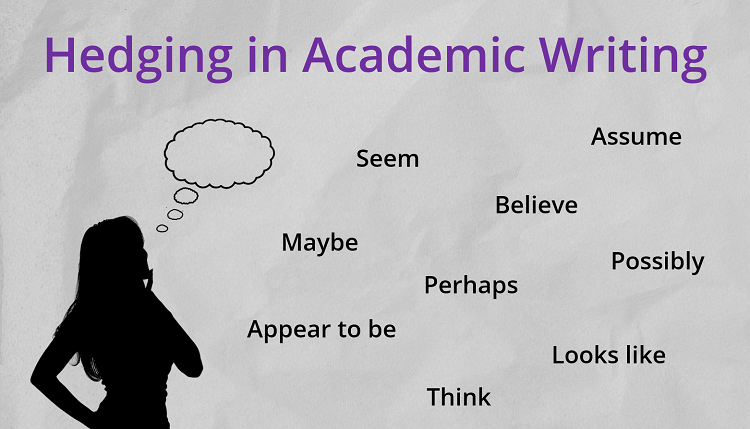In academic writing, it is wise to be careful in one’s statements to differentiate between facts and claims. This is customarily known as “hedging.” Hedging is a pragmatic linguistic device that expresses tentativeness or skepticism on one’s proposition and exhibits politeness and open-mindedness.
People use hedged language for various purposes, but most often to:
- Decrease the possibility of another academic challenging the claims.
- Conform to the presently accepted academic writing style.
- Allow the author to formulate a politeness strategy where they are able to accept that there could be shortcomings in their claims.
Here are a few words and phrases that can be used to attain this:
- Vague verbs – think, believe, seem, tend, indicate, suggest, look like, appear to be, doubt, be sure
- Certain lexical verbs – assume, believe, suggest
- Modal Adverbs – perhaps, possibly, conceivably
- That-clauses – it might be suggested that…, it could be the case that…, there is every hope that…
Consider the following examples:
- It may be said that the commitment to some of the social and economic concepts was less strong than it is now.
- The lives they chose may seem overly ascetic and self-denying to most women today.
In the two statements given above, the introductory that-clause “it may be said” in the first and the vague verb phrase “may seem” in the second infuse a degree of uncertainty to the respective claims.
A vital advantage in academia is that studies are frequently interpreted from numerous perspectives. Hedging gives the study an intrinsic openness that leaves room for questioning, improvement, and development in most fields of study.
Have you understood what hedging is in formal writing and know how to use it? Attempt this exercise to find out.
Besides, if you are looking for an AI-driven writing tool to enhance your writing, then check out Trinka, the world’s first language enhancement tool that is custom-built for academic and technical writing. It has several exclusive features to make your manuscript ready for the global audience.

